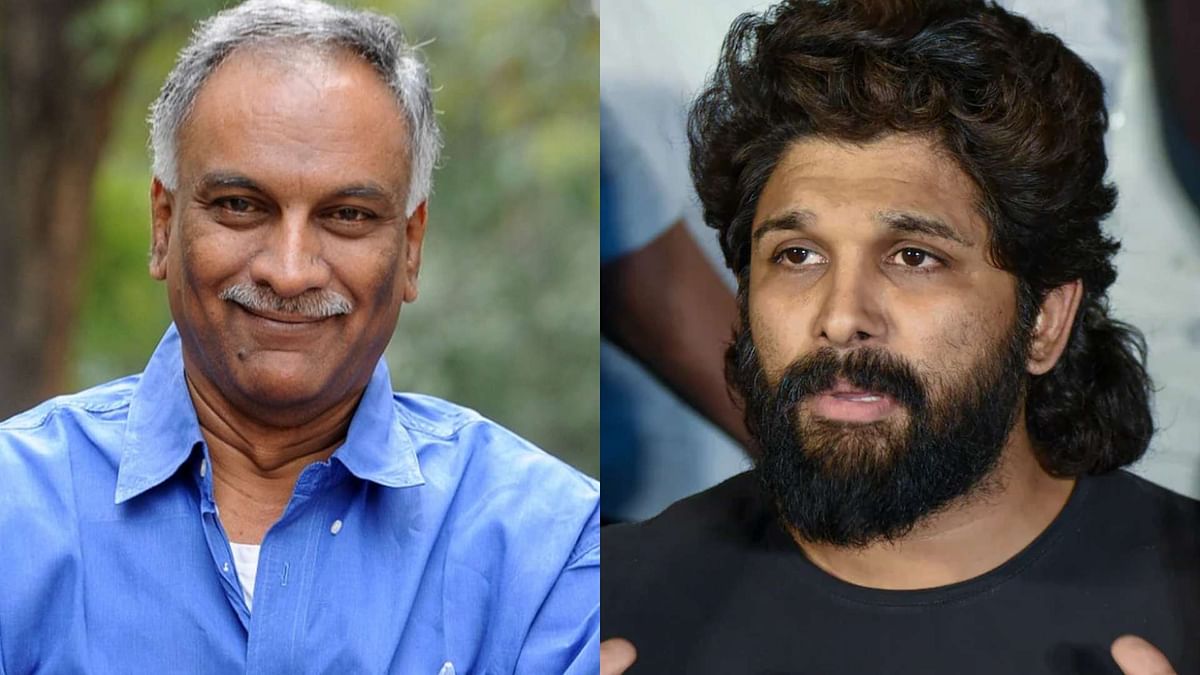Tammareddy Bharadwaj, a veteran filmmaker and a respected voice in Telugu cinema, recently stirred a heated debate by openly criticizing Allu Arjun and the alleged issues of ego-driven decisions in the industry. The remarks come in light of the stampede case involving Allu Arjun, which has drawn widespread attention and scrutiny from both media and the public. Bharadwaj’s comments have not only sparked controversy but also shone a spotlight on a long-standing problem within the entertainment sector.
Tammareddy Bharadwaj’s Strong Words On Ego In The Industry
The stampede case that led to Allu Arjun‘s arrest was a pivotal moment for Bharadwaj to voice his concerns. Addressing the matter, he stated, “The entire industry had to bow down to one person’s ego.” His remarks, though direct, encapsulated deeper frustrations about how ego clashes among prominent figures often overshadow the collective progress of the Tollywood industry. Bharadwaj highlighted that while mistakes can happen unintentionally, knowingly lying to cover them up is “unacceptable.”
This isn’t the first time Bharadwaj has taken a stand on controversial issues. Over the years, he has been a vocal critic of practices and behaviors he believes are detrimental to the growth and harmony of the Telugu film fraternity.

The Stampede Case And Its Fallout
The incident in question occurred during an event where Allu Arjun was reportedly present, leading to a stampede that caused injuries and chaos. Following this, allegations of negligence and improper management surfaced, culminating in Allu Arjun’s arrest. While the actor’s team attempted to downplay the situation, Bharadwaj’s intervention added a new layer of complexity to the narrative.
He directed criticism toward not just Allu Arjun but also the culture of unquestioning reverence for stars, which often allows for lapses in accountability. “Every time, the industry has to approach CM and stand with folded hands,” Bharadwaj said, lamenting the repetitive nature of such scenarios where political intervention becomes a necessity due to avoidable errors.
The Role Of Ego In The Film Industry
Ego-driven decisions, according to Bharadwaj, have often caused significant setbacks in the Telugu film industry. Whether it’s in the context of interpersonal conflicts, project delays, or mishandled events like the recent stampede, ego frequently emerges as an impediment to collective success. Bharadwaj’s statement underscores how such behavior not only impacts individual careers but also tarnishes the reputation of Tollywood on a broader scale.
Moreover, the veteran filmmaker emphasized the need for humility and cooperation, especially among top stars and directors who hold immense influence. “While mistakes are human, failing to acknowledge them and opting to cover them up is a disservice to the entire industry,” Bharadwaj added.

Allu Arjun’s Silence And Industry Reactions
Interestingly, Allu Arjun has chosen to remain silent in response to Bharadwaj’s allegations. This silence, while strategic, has not gone unnoticed. Many in the industry believe that Arjun’s team might be working behind the scenes to control the damage caused by the controversy. However, Bharadwaj’s public critique has opened up a larger conversation about how issues are addressed within Tollywood.
Some industry insiders have come out in support of Bharadwaj’s perspective, acknowledging that his criticism stems from a place of concern for the film fraternity. Others, however, argue that airing grievances publicly might do more harm than good, creating divisions rather than fostering solutions.
A Pattern Of Ego Clashes In Tollywood
This isn’t the first instance where ego clashes have caused disruptions in the Telugu film industry. Over the years, numerous stories have emerged about stars and directors falling out over creative differences, financial disputes, or personal grievances. Such incidents often lead to project delays, increased costs, and, in extreme cases, legal battles.
Bharadwaj’s remarks serve as a reminder that these issues are not isolated but part of a larger cultural problem within Tollywood. Addressing them requires not just individual accountability but also systemic changes that prioritize professionalism and mutual respect.

The Way Forward For Tollywood
Bharadwaj’s criticism, while controversial, highlights an urgent need for introspection within the Telugu film industry. Stars, directors, and producers must collectively work toward creating an environment where egos take a backseat to collaboration and excellence. Events like the stampede incident should serve as wake-up calls, prompting stakeholders to prioritize safety, transparency, and ethical practices.
Furthermore, Bharadwaj’s call for humility and accountability should resonate beyond Tollywood, as these principles are applicable to all creative industries. By addressing these issues head-on, the Telugu film industry can set an example for others, showcasing how a focus on collective well-being can drive sustained success.
Tammareddy Bharadwaj’s Legacy As A Voice For Change
Bharadwaj’s willingness to speak out, even at the risk of controversy, is a testament to his commitment to the betterment of Telugu cinema. As a seasoned filmmaker, he has witnessed the industry’s evolution and understands its strengths and weaknesses. His criticisms are not aimed at individuals alone but at the systemic flaws that hinder Tollywood’s growth.
For younger filmmakers and actors, Bharadwaj’s words offer valuable lessons in humility, professionalism, and the importance of prioritizing the greater good over personal gain. His legacy as a voice for change will undoubtedly inspire future generations to approach their craft with responsibility and integrity.
In a rapidly evolving entertainment landscape, the Telugu film industry has immense potential to achieve global recognition. By addressing issues like ego clashes and fostering a culture of accountability, Tollywood can not only overcome its current challenges but also emerge as a shining example of excellence and innovation in cinema. Tammareddy Bharadwaj’s critique, though sharp, might just be the push the industry needs to embark on this transformative journey.

